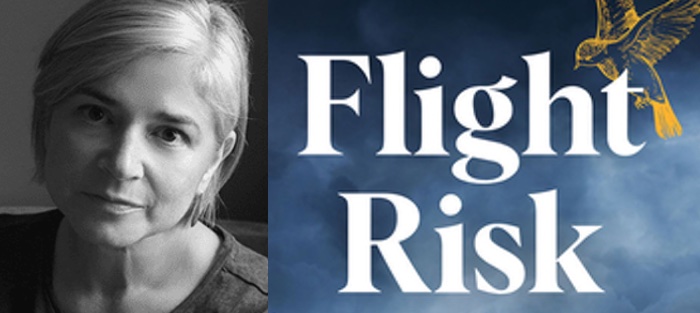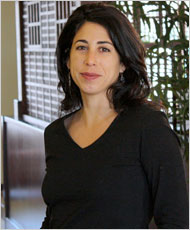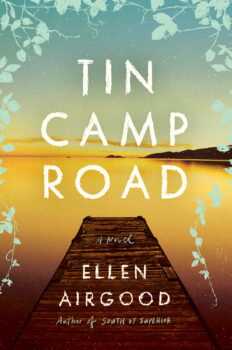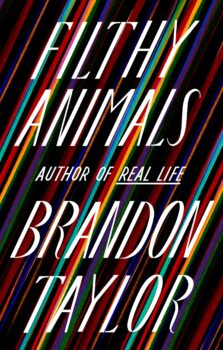I begin my fiction workshops with a question: “Who gets to tell this story?” I want my students to consider an author’s intention and their own in the creative process. My hope is that once they are aware of their reasons for writing, and can articulate them, they’ll be more deliberate in the ways they approach each subsequent draft of their work, employing writing tools worthy of their projects. It’s not a simple task. But a story deserves rigor and intellect. And an artist’s life should mean as much as their work.
I found this intention-meeting-action exemplified in Joy Castro’s new book, Flight Risk (Lake Union). Protagonist Isabel Morales, a successful sculptor, is accustomed to creating art and life from nothing, but it’s her sudden reckoning with family secrets following her estranged mother’s death that forces her to return to her past before moving forward in her future. Joy Castro invites readers to take Isabel’s hand through the nuance of poverty and the Latina experience in West Virginia, and through this compassionate, gritty journey, humanity prevails. Perhaps stories like Flight Risk are best told by authors who can authentically engage class and show us power where we didn’t believe it existed.
What we are asked to do as artists when we deeply consider who should tell a story is consider our own positionality and purpose. We can imagine worlds and experiences wider than our own, of course, but we must reach those voices through not just our creativity but with our ability to listen and to learn. Even when relying on our own roots, we are excavating the generations who walked this road before we set a foot upon it. Reclaiming those roots as part of our own identity rather than covering them for the smoother path is also an act of revolution, especially when that existence was impoverished. When the narrator in Flight Risk comments that hunger is a secret to keep and claims the shame of wanting food in an abundant world, there is a revelation that readers must wrestle with their own indictment in. If poverty is a feminist issue, we must not look away but rather consider how discriminations and prejudice of gender persist. Flight Risk rises to this challenge and reveals hope for a world where women might be valued and self-determining. There is beauty and peace in Isabel Morales’ vision of justice for herself and the land she loves.
Joy Castro is the award-winning author of the post-Katrina New Orleans literary thrillers Hell or High Water, which received the Nebraska Book Award, and Nearer Home, as well as the story collection How Winter Began, the memoir The Truth Book, and the essay collection Island of Bones, which received the International Latino Book Award. She is also editor of the anthology Family Trouble and served as the guest judge of CRAFT‘s first Creative Nonfiction Award. Her work has appeared in the New York Times Magazine, Senses of Cinema, Salon, Ploughshares, Gulf Coast, Brevity, Afro-Hispanic Review, and elsewhere. A former Writer-in-Residence at Vanderbilt University, she is currently the Willa Cather Professor of English and Ethnic Studies at the University of Nebraska-Lincoln.
Joy and I have met up via email for this interview.
Interview:
Melissa Scholes Young: Outlaw fiction intentionally exists outside ordinary society, far from the mainstream, and relishes casting off ordinary norms. Much of the plot of Flight Risk emphasizes exile and what it means to operate as an outcast. What was your intention in telling this story?
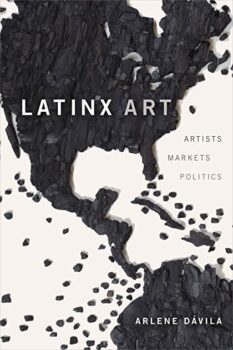
Cover art: Teresita Fernández, detail of Island Universe, 2018. Installation at the Ford Foundation, NYC.
Joy Castro: I love this question; thank you. Yes, the protagonist of Flight Risk, Isabel Morales, is a talented sculptor who’s struggling to break into the mainstream art world, but she’s continually sidelined and bracketed due to her Latinx status. (Scholar Arlene Dávila recently published a fascinating book about this phenomenon: Latinx Art: Artists, Markets, Politics, out last year from Duke University Press.) Complicating this professional challenge is a personal one, for Isabel has also married into a wealthy family. Her husband is an old-money Chicago doctor whose mother and sister are sheltered (and fairly judgmental) socialites, and Isabel is concealing from them the trauma, violence, and brutal poverty of her past in rural Appalachia. She wants to love and be loved, and she’s afraid that her lack of pedigree might make that impossible if she’s found out.
Your compassion for Isabel’s struggle resonates. I’m thinking of this truth bomb, “I know this is how we learn prejudice: twisted in with love and our own eagerness to belong, like a braid that’s hard to unravel,” and how much we bend to fit.
This story really resonates for me personally. As a trained scholar of modernist literature (Joyce, Faulkner, Woolf, Mansfield) who’s been teaching first at a wealthy private college and now at a public Big Ten research institution, I have a lot of insider knowledge and have enjoyed many privileges for the last quarter of a century. But as a Latina who grew up amid poverty and violence in rural West Virginia and who dealt with the devastating family fallout of racism, I have often felt very much at odds with the cultural norms expressed around me in academia. Even people I very much like and admire sometimes reveal assumptions that are incredibly different from my own, and they’re usually oblivious to what I see as the destructive implications of those assumptions. I have often been shocked by the prejudice, bias, ignorance, and cruelty infusing what some middle- and upper-middle-class white people believe about people less privileged than themselves. Twenty-five years of such experiences, cumulatively, can be incredibly isolating, because you’re always faced with a choice in those moments: you can either speak up—and take the flak, because no one likes to feel critiqued—or remain silent and feel like a sellout. There’s never a good, easy, or comfortable choice. It’s exhausting and lonely.
But I’m not interested in being didactic about it. Rather, I like writing what have been called “beach reads for smart people,” as in my two previous novels, and that’s my intention with Flight Risk: I wanted to write an entertaining story that explores the sensation of isolation and exile—that tenuous, fragile, frustrating feeling of successfully navigating a world but chronically feeling not-at-home there. To never enjoy the easy feeling of fitting in, of belonging.
For an exile, an outcast, there’s always tension. It’s always a struggle. And since conflict is an engine—maybe the engine—of fiction, I thought that would be rich territory to explore.
Isabel Morales is an outlier and embraces “silence, exile, a cave of one’s own” as not just a consequence but an identity. Isabel will never belong to her roots and perhaps that’s her greatest asset as a “misfit, orphan.” The journey she’s on returns her to the physical and emotional dirt she must reclaim to grow and to live in the world the way she wants to. Why does this seem like such a radical act?
Oh, thank you for latching onto that phrase! It’s a nod to both James Joyce and Virginia Woolf, canonical writers who shaped my own entry into literature. With it—and with many other lines (like the opening line of the first main chapter: “I’d said I would buy the flowers myself, but that’s not how it worked out,” which reworks the famous opening line of Mrs. Dalloway)—I want to acknowledge, at even the sentence level, the problematic politics of my own views. How can a Latina from poverty see and speak the world when her very aesthetic lenses have been shaped by the literary visions of bourgeois white writers? When I went to university in the 1980s, there were no literature courses that included writers of color. In fact, an upper-level course on the political novel that I took—taught by a white British man—included eleven novels, all of which were authored by white men, a fact that neither he nor we students problematized. I’ll add that he stuck his tongue in the mouth of every pretty female student leaving his end-of-the-semester reception. In the car on the way home, we laughed about it, disgusted and mildly freaked out—but no one reported it or complained. It was just part of the deal back then. That seems so crazy now, but it was our milieu, and it was all of a piece, I think: the simultaneous sexual objectification of us as people and the erasure of writers of color and white women in the curriculum.
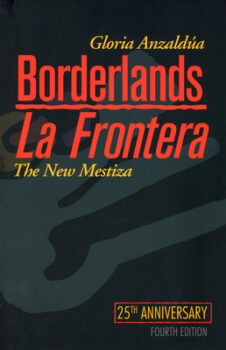 In grad school, Black women writers were much more visible in the curriculum, and I was so grateful for the visions of Maya Angelou, Alice Walker, Audre Lorde, June Jordan, and Toni Morrison. I still had to scour the library on my own, though, to find Sandra Cisneros, Julia Alvarez, Esmeralda Santiago, and other Latina writers. One professor assigned Gloria Anzaldúa’s Borderlands/La Frontera: The New Mestiza, which blew me away, without having read her first and then apologized to the class; he hadn’t realized she was so angry, he said. Things have changed so much in a few decades. But not enough.
In grad school, Black women writers were much more visible in the curriculum, and I was so grateful for the visions of Maya Angelou, Alice Walker, Audre Lorde, June Jordan, and Toni Morrison. I still had to scour the library on my own, though, to find Sandra Cisneros, Julia Alvarez, Esmeralda Santiago, and other Latina writers. One professor assigned Gloria Anzaldúa’s Borderlands/La Frontera: The New Mestiza, which blew me away, without having read her first and then apologized to the class; he hadn’t realized she was so angry, he said. Things have changed so much in a few decades. But not enough.
So in a way, I guess that’s why Isabel’s reclamation of the dirty, painful, grievous, shameful grounds of her origin might seem radical to some readers: because where she comes from—poverty, racialized otherness, female embodied experience, violence—has been largely expurgated from not only the literary canon but also academia and other white-dominated, male-dominated institutions—like the judiciary, for example. Brett Kavanaugh sits on the Supreme Court in 2021. Hard to believe.
And the other aspect, the literal soil of West Virginia and what has been done to it by generations of rapacious mine owners—let’s have a look at what Senator Joe Manchin believes our future should look like. Let’s look at ill-gotten white male wealth and the destruction it has blithely wrought and continues to wreak upon the earth.
Isabel loves the land, the forest, the dirt and leaves and woodland animals and little creeks. They’re her home. She’s trying to figure out how to live in a way that feels whole, full, and real.
Much of Flight Risk comments on how class affects women’s bodies. Jon’s mother is carefully polished and protected from strife and age. By comparison, Isabel considers her own grandma’s defeat and depletion from hard labor, lack of medical care, the stress of poverty, “Life used you up and hurt you leaving you alive and in pain. What led to your invention of a character like Isabel who can straddle these worlds?
I wanted Isabel to be on the cusp: to be that woman who has seen both sides—extreme abjection and poverty; extreme wealth and privilege—and has crucial decisions to make. She has a bit of power to make choices, so she has agency, and she’s scared. I think that’s the most perilous, interesting position we can be in, and high stakes make for good fiction. At one point in the novel, Isabel’s alone on a mountain peak looking out at a vista that’s been savagely destroyed by mountaintop-removal mining, seeing a possible future; at another moment, she’s in an artist’s studio on a different mountaintop, envisioning a radically different politics. In fiction, I want to paint vivid pictures of possibility, and let readers decide what they believe and what they want.
Isabel criticizes the wealthy class she has joined. About her husband’s community service and benevolence, she claims, “It’s easy to play the hero when you’ve always had it all.” There is a resentment and a disgust toward the very privilege she’s hiding in. Will you talk a bit about the ambivalence in Isabel? How does it serve her and the novel?
Great question. Yes, if Isabel were a neatly pure character, always aligning herself with a clear moral good, there wouldn’t be much of a conflict. Having suffered tragic loss as a child, Isabel threw her lot in with the promise of the American Dream narrative, only to find, when she’d achieved a version of it, that it wasn’t quite all it was cracked up to be. She’s very skeptical of people’s motives, even when they’re doing good, because she’s been the object of charity and pity, and she knows how often it can be self-serving on the part of the giver—a performance of superiority and generosity, even when it achieves practical good—and how close it can come to exploitation of the powerless.
Ambivalence is, to me, far more interesting than purity. It’s complicated—and, to quote From the Mixed-Up Files of Mrs. Basil E. Frankweiler, I guess I like complications.
I see stealth craft moves in determining what your readers need to know when and how backstory serves the evolution of plot. The flashbacks are rewarding interruptions that propel the larger narrative through these necessary pauses. Isabel’s past intersects with her present and Easter eggs casually left for a close reader’s delightful hunt. What decisions did you make in structure and revision to achieve this?
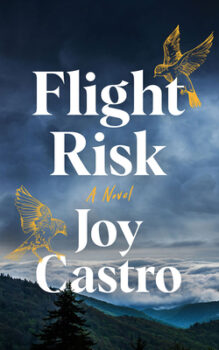 Oh, thank you! I appreciate that. In the first section, “Happily Ever After,” I thought it was important to establish how terrific Isabel’s current life looks, according to most bland standards of success. She’s got money, a handsome husband, a picture-perfect condo overlooking Lake Michigan—and she’s quite possibly pregnant with the baby her husband wants.
Oh, thank you! I appreciate that. In the first section, “Happily Ever After,” I thought it was important to establish how terrific Isabel’s current life looks, according to most bland standards of success. She’s got money, a handsome husband, a picture-perfect condo overlooking Lake Michigan—and she’s quite possibly pregnant with the baby her husband wants.
But then I wanted to unpack the twinned fairy tales of the American Dream narrative and the marriage plot. As Isabel takes multiple flights back to West Virginia on the occasion of her mother’s death in prison, she has the time to recall salient episodes from her past that let readers know why she dreads going home so deeply. It’s a kind of unraveling that happens before she lands and begins driving her little red rental car into the mountains. And there are other moments when she suddenly tunnels briefly into the past—a classically Woolfian move—and it makes readers see her present differently.
I love fairy tales, nested dolls, and so on—all structures that feature secrets within secrets: the intricacy and resistance of that, and the way the shape itself provokes a quest: curiosity, hunt, discovery. Over and over again.
The land in West Virginia, the ownership and exploitation of it, creates environmental tension and mystery in the novel. What role does fiction have in the conversation about climate change and the impact of human activity on our land?
A huge role, I think. While I admire a good dystopia as much as the next politically disillusioned person, I think the future needs the power of our imaginations to generate hopeful alternatives. I do understand that it takes more energy. Bleak critique is easier and more satisfying to the ego, for sure; justifications for pessimism abound, and deploying our imaginations in the service of hope is vastly harder. But I’m interested in vision. I’m interested in love and survival and beauty.

